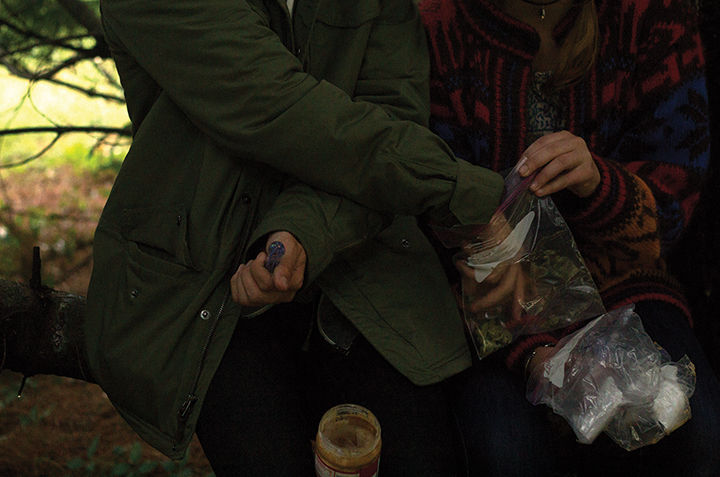
Almost four months after Washington decriminalized marijuana, voters passed a ballot initiative Tuesday to legalize the substance in the nation’s capital.
Washington voters approved the general election ballot’s Initiative 71 — 69.4 percent for and 30.6 percent against — which allows residents over the age of 21 to legally possess up to two ounces of marijuana for personal use and to grow up to six plants in their homes.
The initiative will also permit those of age to share up to an ounce of marijuana with other adults within legal limits, and three of the six home-grown plants can be mature, said Malik Burnett, vice-chair of the DC Cannabis Campaign.
“As of today, we’ll continue our fight to ensure that the voice of the District residents are heard,” Burnett said. “We’ll make sure that the voice of the voters is heard at the federal level.”
After the decriminalization law for the substance went into effect in July, possession of less than an ounce of marijuana resulted in a $25 fine and confiscation instead of criminal consequences. Now, possession of the drug results in no fine or consequences if adult use is restricted to one’s home in the city’s legal limits.
The initiative, which does not permit the sale of marijuana, will move before the D.C. Council this month. The Council will regulate the substance, including setting its taxation and sale conditions. The bill will then pass on to Congress, which can opt to agree with the voters’ decision or overturn it.
Barring opposition from Congress, the bill is slated to take effect as early as April 2015, Burnett said.
Burnett, who is also the policy manager of the Drug Policy Alliance, said he has been “seeing a relatively strong” support for the initiative leading up to the election, which continued through Tuesday evening.
“With the District of Columbia legalizing marijuana, it will definitely put the issue of marijuana policy right squarely in front of Congress,” Burnett said. “If they want to take it seriously and think about reworking the policy, they’ll have the opportunity right now.”
The initiative’s success provides relief for district residents who have been fined or arrested under the current law, said Zack Pesavento, a D.C. Cannabis Campaign spokesman.
Pesavento said one voter in the District approached those campaigning for the initiative today, and said this ballot question was “the only reason he was even out there today.”
“The campaign may actually be helping to drive voter turnout that’ll have an effect on other races,” Pesavento said.
But the substance is still illegal under federal law and within this state, which could be influenced by this initiative in Washington, Pasavento said.
Even though the initiative hasn’t passed in this state, students can still feel the effects a few Metro stops away, said sophomore Olivia O’Keefe,president of this university’s chapter of Students for Sensible Drug Policy.
Ray Wight, a junior finance major, said that although he’s a student in this state, he supports Washington’s legalization of marijuana and anticipates it will translate to more states as time goes on.
“I feel like the marijuana culture at Maryland won’t differ from something like this,” he said. “If I were to be able to vote in D.C., I would.”
This approval means a lot for Washington, said O’Keefe, a community health major. This is a “step in the right direction” for all communities nearby, she said.
According to a 2010 report by the American Civil Liberties Union, black people were reportedly eight times more likely than white people to be arrested for marijuana possession in Washington, despite the roughly equal use of marijuana across all races, Burnett said. And although the Council decriminalized the substance, he said 77 percent of tickets written for marijuana offenses since then have been within communities of color.
“We’ll see that bias be eliminated, because the police cannot use marijuana as a tool to arrest people of color in the district,” Burnett said. “It only makes sense that the District of Columbia put an end to colorization of marijuana in this fashion.”
Some people feel that marijuana is bad for the society in general, and in turn, is not worth being legalized, O’Keefe said. But the issue is becoming more bipartisan. More work needs to be done to make this bill perfect in her eyes, but O’Keefe said it can reach out to anyone in the area.
“Just the fact that we’re so close to it, proximity-wise, students will directly feel the effects of this bill passing,” O’Keefe said. “Ideally, this will be a model for Maryland to see how it works in a smaller community that’s still close by.”



